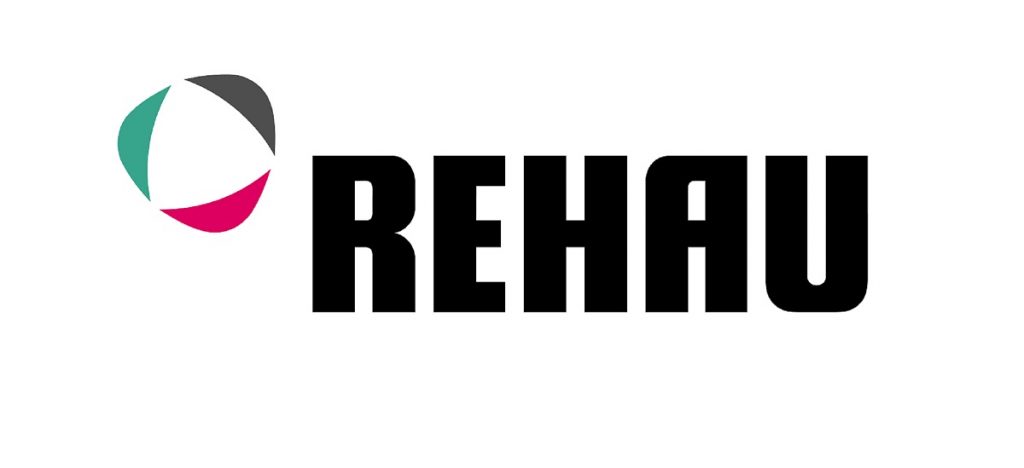
REHAU: Amber warnings raise building overheating concern
Following the recent Met Office amber extreme heat warnings, polymer specialist REHAU warns current sustainable design must mitigate overheating in buildings as heatwaves become more prevalent.
Recent research of 520 M&E contractors and architects, 130 of which worked specifically on apartment buildings, in REHAU’s report Designing Healthy Apartments, also raised similar concern.
The majority of these respondents felt sustainability would be the most important design issue over the next ten years in multi-residential buildings, closely followed by temperature control.
These conditions pose a health hazard for the building occupants living in such temperatures, which reached over 30 degrees in Wales and Southern and Central England last week, resulting in the amber warning for affected areas.

As such, Steve Richmond, Head of Marketing and Technical at REHAU Building Solutions, draws attention to the importance of including efficient cooling methods as part of ‘healthy designs’, in order to futureproof buildings.
Steve says: “As pressure increases to make buildings more energy efficient through improved insulation, very few measures are being put in place to offset excessive indoor temperatures during the warmer weather.
“As we continue to see fluctuations between colder winters and hotter summers, consultants and contractors should consider measures in design buildings to be able to cope with these contrasting conditions, while retaining sustainability credentials.
‘Cooling methods will need to be efficient and low energy’
“Additionally, government targets of reaching net-zero emissions by 2050, means cooling methods will need to be efficient and low energy. ‘Healthy design’ therefore not only needs to be beneficial to the people living inside, but environmentally friendly too.
“Consequently, our new guide to healthy apartment design outlines possible solutions that are more efficient than traditional mechanical cooling methods and can help contractors and specifiers meet this sustainability challenge.”
Thermally Activated Building Structures (TABS), for instance, regulate the temperature of the building by running hot or cold water through the pipes within the concrete slabs, continually removing heat during hotter months.
As such, these avoid the need for mechanical energy intensive cooling systems and regulate heating and cooling efficiently across the year.
As identified by groups such as the Climate Change Committee (CCC), large numbers of heat pumps are needed to reach net-zero. On top of delivering efficient, low-carbon space heating and hot water, heat pumps can also provide cooling via underfloor heating pipework.
To support heat pumps, underfloor heating & cooling and other means of cooling such as fan coils and chilled ceilings, specifiers and contractors should consider incorporating smart controls into their projects.
‘A key priority’
Steve says: “Energy efficiency will remain a key priority and as end users come to expect solutions to deliver this. Employing technologies such as smart controls to regulate low-carbon temperature systems will help to ensure sustainability and occupant wellbeing requirements are met.
“Solutions such as REHAU’s NEA Smart 2.0 use intelligent algorithms and sensors to regulate temperature and reduce energy consumption, while further improving occupant wellbeing by monitoring humidity to improve air quality.
“Hot weather is going to become an increasingly common occurrence across summers each year, so it is now more important than ever that our buildings are equipped to avoid overheating and subsequent issues for occupants.
“With this guide, we aim to provide solutions that will help to alleviate such issues in order to futureproof infrastructure by balancing between sustainable solutions with those that promote wellbeing.”
For more information on REHAU’s solutions, please visit www.rehau.uk/designinghealthy
Latest news

28th March 2025
Ideal Heating Commercial announces 10-year warranty on Evomax 2 boiler
Evomax 2, the UK’s number one selling commercial wall-mounted boiler from Ideal Heating Commercial, is now available with a 10-year warranty.
Posted in Articles, Building Industry News, Building Products & Structures, Building Regulations & Accreditations, Building Services, Facility Management & Building Services, Heating Systems, Controls and Management, Heating, Ventilation and Air Conditioning - HVAC, Innovations & New Products, Pipes, Pipes & Fittings, Plumbing, Retrofit & Renovation, Sustainability & Energy Efficiency, Videos
28th March 2025
FLIR Si1-LD Acoustic Imaging Camera for Compressed Air Leak Detection
FLIR, a Teledyne Technologies company, introduces the Si1-LD, an industrial acoustic imaging camera that brings faster and more accurate compressed air leak detection to those operating on a modest condition monitoring budget.
Posted in Acoustics, Noise & Vibration Control, Articles, Building Industry News, Building Products & Structures, Building Services, Facility Management & Building Services, Information Technology, Innovations & New Products, Retrofit & Renovation, Sustainability & Energy Efficiency, Thermal Imaging and Monitors
28th March 2025
LIFTEX 2025 Seminar programme announced
Registration has opened for LIFTEX 2025. Now in its 37th year, LIFTEX 2025 is the UK’s only dedicated exhibition for the lift, escalator and access industry and takes place only once every three years.
Posted in Access Control & Door Entry Systems, Accessibility, Articles, Building Industry Events, Building Industry News, Building Products & Structures, Building Regulations & Accreditations, Building Services, Exhibitions and Conferences, Facility Management & Building Services, Health & Safety, Retrofit & Renovation, Security and Fire Protection, Seminars
28th March 2025
MCRMA welcomes ArcelorMittal UK to membership
A UK division of the global steelmaking business ArcelorMittal has become the latest new member of the MCRMA, the industry association representing the metal building envelope sector.
Posted in Articles, Building Associations & Institutes, Building Industry News, Building Products & Structures, Building Systems, Cladding, Facades, Posts, Restoration & Refurbishment, Retrofit & Renovation, Roofs, Steel and Structural Frames, Walls
 Sign up:
Sign up: